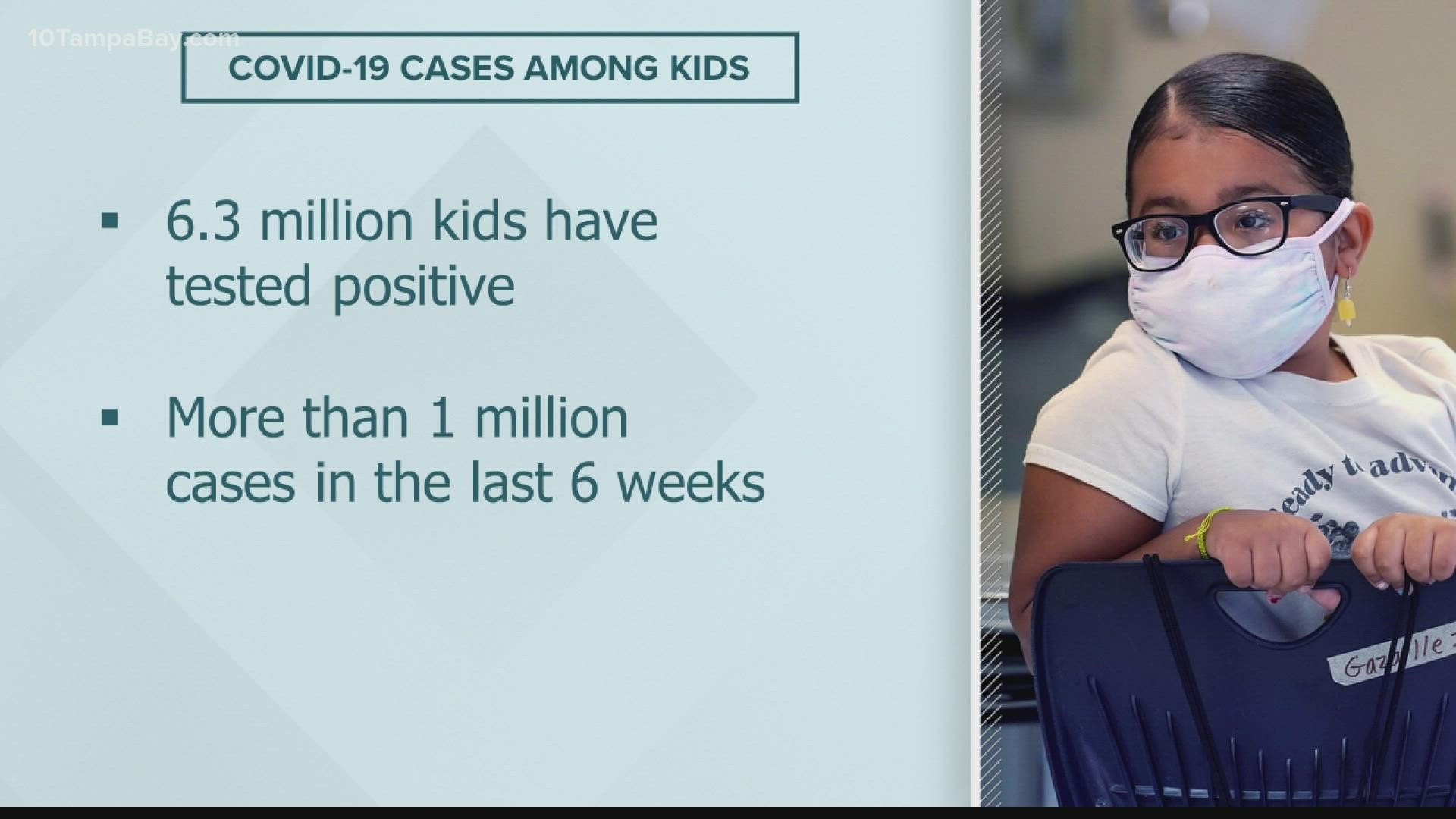TAMPA, Fla. — Next month will mark nearly a year since COVID-19 vaccines first became available to health care workers and first responders across the country. Since then, the Pfizer vaccine has received FDA approval for any person over the age of 12.
However, it hasn't been all smooth sailing after the scientific breakthrough. The nation just recently overcame another wave of positive cases and hospitalizations, thanks in part to the more transmissible delta variant. In some parts of the country, including here in Florida, those summer months were worse than the initial year of the pandemic.
Health experts labeled the summer surge "a pandemic of the unvaccinated." However, the news of breakthrough cases was being reported at the same time.
Recently released data from the Centers for Disease Control and Prevention displays just how common those cases were.
RELATED: Jen Psaki says she has COVID-19
Average cases by vaccine status
According to the CDC, scientists discovered that during the month of August, when the delta variant was ravaging the country, unvaccinated people were six times more likely to contract COVID-19.
And the data backs it up. At the peak of the reported cases during that period of time, data shows unvaccinated people accounted for 736 cases for every 100,000 people. Vaccinated people accounted for 121 cases for every 100,000 people.
Similar information can be seen when breaking down the data by age group.
Average deaths by vaccine status
When looking at deaths, the difference between being vaccinated and unvaccinated was much more drastic. The CDC says, during that same period of time in August, unvaccinated people were 11 times more likely to die from COVID-19.
Once again looking at the data provided, for every 100,000 unvaccinated people, there were 13 reported COVID-related deaths. Vaccinated people accounted for just one death.
What we know about breakthrough cases
In just a few short months, researchers have learned a lot about COVID in vaccinated people. Here are some of the key takeaways:
If you test positive, a fully vaccinated person is unlikely to have a serious case, end up hospitalized or dead. Instead, they might be asymptomatic or have a few mild symptoms for a short amount of time.
"Some people could get sick, but generally we see really mild symptoms in people who have been vaccinated. You may notice a sore throat, little bit of a cough, little bit of malaise, which is just feeling tired," said Dr. Jill Roberts, an epidemiologist at the University of South Florida.
A fully vaccinated person is also less likely to transmit the virus to someone else. While a vaccinated person might have the same amount of viral load as an unvaccinated person, a vaccinated person will likely clear the virus much faster.
In other words, a vaccinated person is not contagious for very long.
A study just published in British medical journal The Lancet says fully vaccinated people can contract and pass along the delta variant. However, vaccinated people get rid of the infection quicker and are contagious to others for a shorter period of time than unvaccinated people, according to the study.
Because vaccines are not 100-percent effective, the CDC says as the number of vaccinated people goes up, so to will the number of breakthrough cases. However, the rates of cases, hospitalizations and deaths will also diminish significantly.
As of Monday, around 66 percent of Americans have received one dose of the COVID-19 vaccine, 58 percent are fully vaccinated. Here in Florida, more than 11 million people are fully vaccinated against COVID-19.

